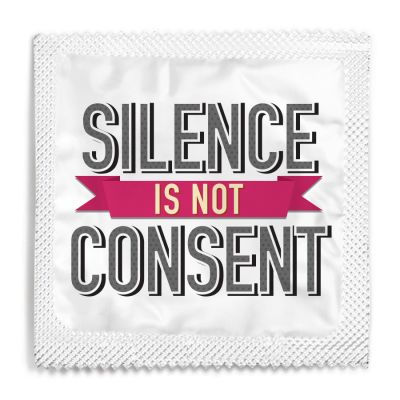Silence is not consent to receive calls under the TCPA
- Peter Schneider

- Sep 20, 2024
- 4 min read

In a ruling that should surprise no one but is refreshing to see, a New York federal court ruled on September 19, 2024 that silence is not consent to receive calls under the TCPA. In Watson v. Manhattan Luxury, 2024 WL 4238307 (S.D.N.Y. Sept. 19, 2024), the plaintiffs had an established business relationship with their Honda car dealer. They also signed forms expressly granting the Honda dealer permission to call. The Honda dealer closed and their calling list went to a (different) Lexis dealer.
Before closing, the Honda dealer notified their calling list that they could get services from the Lexis dealer, and gave the list an option to opt out of future calls. Those numbers that didn't opt out went to the the Lexis dealer who started texting.
Very predictably the Lexis dealer got sued for unwanted calls and the they put up two defenses. First, that not opting out was an opt it, and second, the Lexis dealer was an affiliate of the Honda dealer so the Established Business Relationship allowed the calls. As much as some judges get knocked for ignoring the law and doing what they want, we need to give credit to judges who read and follow the law as was done here.
If you registered your telephone number on the FTC's do-not-call registry, you should not get more than one telephone solicitation from or on behalf of the same entity in a 12 month period without your prior express invitation or permissions which "must be evidenced by a signed, written agreement between the consumer and seller which states that the consumer agrees to be contacted by this seller and includes the telephone number to which the calls may be placed".
So the court quickly killed the Lexis dealer's second argument:
Regardless of whether a customer marked the checkbox or declined to do so, no reasonable jury could find that the Contract Authorization reached beyond [Honda dealer]’s contacts to provide express consent for [Lexis dealer]’s contacts. While the Contract Authorization is “a signed, written agreement between the consumer and seller which states that the consumer agrees to be contacted by this seller and includes the telephone number to which the calls may be placed,” 47 C.F.R. § 64.1200(c)(2)(ii), the permission granted is limited to [Honda dealer]. The definition of “we,” “us” and “our” to whom consent is given names [Honda dealer] and does not name or describe [Lexis dealer].
The Lexis dealer's first argument involved some first class chicanery. When the Honda was closing they they gave their customers a notice that they might give their customer numbers to someone else who would telemarket to the list. And better yet, they made at least some customers sign that they had received the notice. Again, props to this judge because some courts would have called that win for the defendant but this judge followed the law, recognizing "Nowhere does the customer agree to be contacted by the parties who may receive HOM’s customer’s information, nor is the customer given the option to object or opt-out."
A telemarketer or seller can't "notice" you that they are going to telemarket you, and even go to the trouble of demanding you sign your name to having received the notice, and call it consent. Only in telemarketing do some corrupted courts go for this. If I knocked on your door with a notice that I would be now coming by to mow your lawn for $100 a week, no court would call that a contract. If I bullied you into signing a piece of paper acknowledging that you received my notice, no court would call that a contract. This court didn't let them get away with doing it with telemarketing.
The court also shot down the argument "that Plaintiffs’ failure to opt out of its “follow-up” messages establishes consent".
"Defendant sent messages stating, “Good afternoon, this is Jen the service concierge from Lexus of Manhattan. Can I text you regarding the maintenance for your Honda vehicle?” Defendant continued to solicit those customers who did not reply to opt out. But those customers’ silent acquiescence were not “a signed, written agreement between the consumer and seller which states that the consumer agrees to be contacted by this seller and includes the telephone number to which the calls may be placed.” Id. Nothing in the statute suggests that sufficient consent can be created in this way."
This root argument - not opting out is opting in - is the holy grail of the telemarketing industry. It has never worked on a court that cares about the law (or an appeals court) but it works every so often at the district court enough that the telemarketing industry sees it like a mirage in the dessert. They keep walking towards it as it keeps getting further away via appellant decisions.
We are trying to drive a stake through its heart in a Walmart case:
Kudos to the court for protecting the citizens from abusive telemarketing. The telephone consumer protection act was intended to prevent calls consumers don't expect and don't want.
Are telemarketers harassing you in Washington, Oregon, or Montana? We can help, just give us a call at 206-800-6000 or email peter@nwdebtresolution.com.
The thoughts, opinions and musings of this blog are those of Peter Schneider, a consumer advocate and Washington State plaintiff's TCPA attorney at Northwest Debt Resolution, LLC. They are just that, his thoughts, opinions and musings and should be treated as such. They are not legal advice. If you are looking to file a lawsuit for TCPA violations and unwanted calls please contact me for a consultation.



Comments